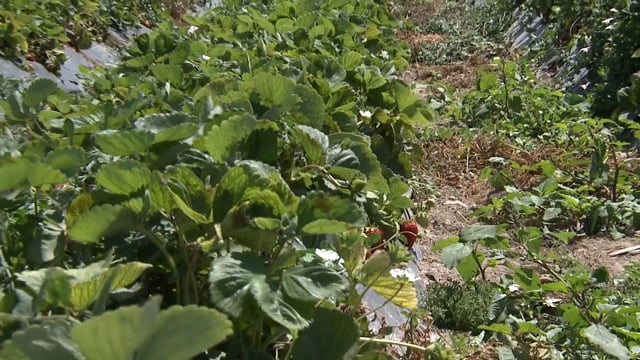[WATCH] Farmers to be given €900,000 in compensation for drought
Farmer says that the winter drought had piled up irrigation and pesticide costs, and it would have an effect on the production of summer fruits


Some 5,000 local farmers will be given €900,000 in compensation for the damages sustained due to the uncharacteristic droughts throughout the winter season, parliamentary secretary for agriculture Roderick Galdes said.
Speaking at a press conference, Galdes explained that the past winter had been characterized by an unusual drought, with this year being termed one of the worst in terms or rainfall and high temperatures.
“The government has allotted an emergency fund for the damages suffered by farmers who grow fruits and vegetables,” Galdes said, adding that the government would also be applying for EU funds to make up for the funds allotted to the sector.
Galdes said that farmers would not have to apply for the funds, but that they would receive them just as they do their other yearly entitlements.
He added that the government would also be applying for other aid packages in the agricultural sector including milk and pork production.
Farmer, Benny Camilleri, whose field the press conference was held in, explained that the drought had ultimately meant that farmers had to rely on irrigation, ramping up costs for all the operations.
“The warm temperatures also meant that certain pests and insects survived through the winter months, making the use of pesticides a must, and further increasing spending for farmers.”
Camilleri said that although it was difficult to quantify the extra spending caused by the drought, it was also important to note that the effects of the dry winter would continue to be felt for a number of years.
“Fruit trees like peaches, and other fruits like strawberries would normally undergo a period of ‘rest’ during the winter months, to allow them to be revived and produce better fruits in the warmer months,” Camilleri said, adding that it would also take the crops some time to recover fully.
Camilleri added that although his farm had fared so badly due to his access to ground water, the impact of another dry winter such as the one Malta has just experienced would be unthinkable. He also pointed out that the absence of water and the impact on flowers and plants would also have an impact on the local bee populations.
Galdes further pointed out that the focus was not just on providing emergency financial aid, but that projects to target climate change in the long-term and to anticipate such extreme weather conditions were underway.
“We are trying to gear farmers to improve their water use through better water dispersion systems, and the sewage treatment plant is expected to be functional in the coming months,” Galdes said.














.png)








